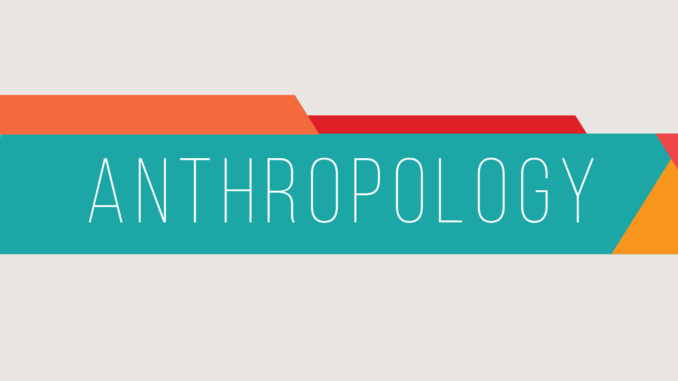
“What is man, that thou art mindful of him?” is the question that David asks the Lord in Psalm 8:4. The question “what is
The word anthropology comes from the Greek word anthropos, which means “man”; therefore, biblical anthropology is a Scriptural study of mankind. Scripture is clear that the origin of man is not in evolution; nor did God use the evolutionary process to create humans. God created humans for His purpose and plan. On the sixth day of creation, Genesis 1:26, with God speaking, tells us, “let us make man in our image, after our likeness.” The next verse proclaims, “So God created man in his own image, in the image of God created he him; male and female created he them.”
Since we represent Him on this earth, we must represent Him well. Click To TweetDaniel Akin, in A Theology for the Church, states that the spread of the theory of theistic evolution–that God used evolution in creating the universe–was first perpetuated by men such as Charles Hodge, B.B. Warfield, and Augustus H. Strong. There is a broader acceptance of theistic evolution among evangelical scientists and believers today; around 40%, according to a 1997 survey.
How were humans created in the image of God? The Hebrew word for “image” (tselem) and “likeness” (demut) in verse 26 refers to “something similar, but not identical.” Humans are created in God’s image in the sense that we are like God in certain aspects, and we are to represent God. This is reflected in man’s personality, intellect, emotion, and creativity; however, we cannot fully understand all the ways we are like Him since we do not fully understand everything about God.
Humans possess a physical body, but they also possess a soul and spirit. Genesis 2:7 tells us, “And the Lord God formed man of the dust of the ground and breathed into his nostrils the breath of life, and man became a living soul.” I Thessalonians 5:23 gives evidence that we have a spirit as well, “I pray God your whole spirit and soul and body be preserved.” Hebrews 4:12 also makes the distinction between soul and spirit. The question is asked, “what is the difference between soul and spirit”? Both terms constitute the immaterial aspect of humans. Some have defined the soul as that which is man’s intellect, emotions, and will; while the spirit is that element that gives us the ability to have a relationship with God. However, the dividing point between these terms is known only to God.
When does the soul begin? The Traducian View, held by Tertullian, Luther, and Jonathan Edwards, maintains that the soul comes into existence at the moment of conception through the parents. David admits in Psalm 51:5, “Behold, I was shapen in iniquity; and in sin did my mother conceive me.” This verse tells us that the soul is both present and fallen at the moment of conception. One may argue, “how, then, could Jesus be conceived without sin”? The answer is simple: Jesus Christ was supernaturally conceived by the Holy Spirit. Humans were not involved in the incarnation of Jesus; Mary was the person God chose to deliver Him to the world. The Traducian view has a stronger Biblical argument for the origin of the soul.
A biblical understanding of anthropology is vital for us to understand the meaning and purpose of life. Click To TweetA biblical understanding of anthropology is vital for us to understand the meaning and purpose of life. God did not create mankind because He was lonely or bored; He created us for His own glory. The Lord proclaimed in Isaiah 43:7, “Even every one that is called by my name: for I have created him for my glory, I have formed him; yea, I have made him.” Paul reminds us of our purpose in I Corinthians 10:31, “Whether therefore ye eat, or drink, or whatsoever ye do, do all to the glory of God.”
We are made in God’s image, and we were created to represent and reflect His image. Since we represent Him on this earth, we must represent Him well. For example, we must take a stand for life because God is the Creator of it. Nothing promotes the sacredness and preciousness of life more than knowing we are created in His image. We must also glorify Him in all aspects of our life: to truly worship Him in spirit and in truth (John 4:4); to walk in such a way that honors Him (Romans 12:1-2); and to represent Him well as we love our neighbors and passionately share the Gospel with those who are lost.
Click here to read the Introduction to the series, Why Study Theology
Click here to read part one of Rooted: An Introduction to Systematic Theology, Bibliology
Click here to read part two of Rooted: An Introduction to Systematic Theology, Theology Proper (available October 29, 2019)
Click here to read part four of Rooted: An Introduction to Systematic Theology, Pneumatology (available October 31, 2019)
Click here to read part five of Rooted: An Introduction to Systematic Theology, Angelology (available November 1, 2019)
Click here to read part six of Rooted: An Introduction to Systematic Theology, Ecclesiology (available November 4, 2019)
Click here to read part seven of Rooted: An Introduction to Systematic Theology, Anthropology (available November 5, 2019)
Click here to read part eight of Rooted: An Introduction to Systematic Theology, Hamartiology (available November 6, 2019)
Click here to read part nine of Rooted: An Introduction to Systematic Theology, Soteriology (available November 7, 2019)
Click here to read part ten of Rooted: An Introduction to Systematic Theology, Eschatology (available November 8, 2019)
Click here to read part eleven of Rooted: An Introduction to Systematic Theology, Dispensationalism (available November 8, 2019)
